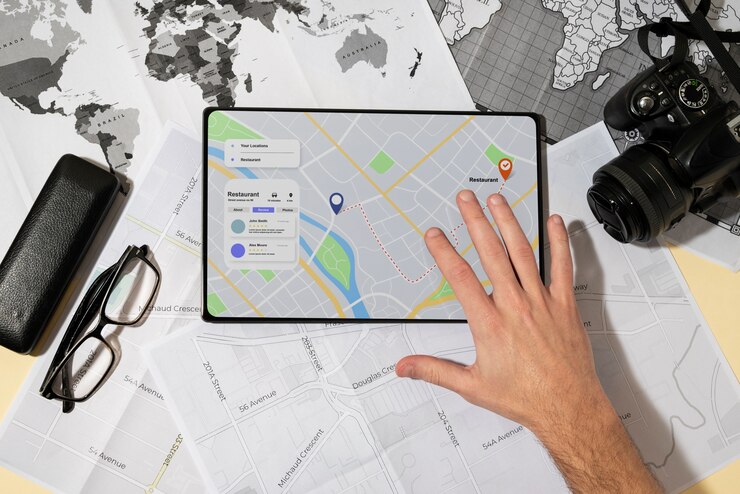January 05, 2024
Local SEO: Optimising Your Business For Local Searches
What’s the difference between local SEO and SEO?
Does local SEO really work?
Local SEO is a digital marketing strategy that can help businesses improve their online presence and attract more customers through relevant local searches on popular search engines like Google. Search Engine Optimization (SEO) primarily focuses on improving a website's visibility in organic search results on search engines. The idea behind local SEO is to increase your business's visibility and reach, especially if you have a physical location or serve a specific geographic area. With the right optimisation techniques, you can rank higher on search engine results pages (SERPs) and attract more customers.Understanding Local SEO
Local SEO aims to boost online visibility, which can result in more business from local searches made on Google and other search engines. People who search for services "near me" are typically ready to act upon their search, and the higher a business ranks in local search results, the more likely it is to attract these motivated customers. A local SEO strategy involves several tasks, including optimising a company's Google Business Profile, identifying local keywords, and creating content that is relevant to local customers. Search Engine Optimisation can benefit any business, as more than 75% of consumers in countries such as the United States, France, Germany, and the United Kingdom use Google to find local business information.Implementing a Local SEO Strategy:
A successful local SEO strategy entails several steps.1. Local Keywords
Researching local keywords is a necessary first step. This procedure entails identifying keywords that people use when searching for local products and services. Once you have identified these keywords, you can incorporate them into your website content, meta tags, and other SEO elements to improve your visibility in local search results.2. Google Business Profile
Next, optimise or give your Google Business Profile a makeover. This involves providing detailed information about your business, including your exact location, the services you offer, your operating hours, and attractive photos of your business. Making sure your name, address, and phone number (NAP) information is consistent across all online platforms can help you rank higher in search engines.3. Local Citations
Another essential aspect of local SEO is acquiring local citations. Citations are online mentions of your business, which usually appear on business directories, social media platforms, and other websites. Search engines like Google use these citations to verify your business information, enhancing your credibility and visibility in local search results.4. Online Reviews
Encouraging and managing online reviews is another effective local SEO strategy. Online reviews can significantly influence potential customers' buying decisions, as they provide social proof of your business's reliability and quality. Responding to these reviews, whether positive or negative, shows your commitment to customer satisfaction and can help build a positive online reputation.5. Link-building and On-page SEO
Link-building and on-page SEO play equally important roles in local SEO. On-Page SEO comprises optimising the landing pages of your website by using appropriate keywords, meta tags, and high-quality content, which helps to improve the search engine ranking. On the other hand, link-building involves acquiring high-quality backlinks from other trustworthy websites, which enhances the credibility of your website, ultimately leading to an improved search engine ranking.Tips And Strategies to Improve Local SEO
1. Understand the Basics of Local SEO
Local SEO is all about increasing search visibility for businesses that serve their communities face-to-face. These can be brick-and-mortar businesses with physical locations or service-area businesses that operate through a certain geographic area. Local SEO encompasses a range of strategies, from claiming your business listing to creating a responsive website design.2. Optimise Your Google Business Profile Account
The first step in any local SEO strategy is to claim and verify your local business' Google Business Profile. Getting on Google Business can increase your chances of showing up in Google's Local Pack, Google Maps, and organic rankings in general. Qualifying local businesses can claim this free listing, and include information about their company, like their address, phone number, business hours, and types of payment methods accepted.3. Get Regular Reviews from Happy Customers
Getting your customers to write positive reviews for your business doesn’t just optimise your Google Business presence; it also encourages more local customers to buy from you. Encourage customers to leave a review after a purchase or visit and make it as simple as possible for them to review your business on platforms like Google.4. Optimise for Voice Search
Voice search usage is seeing unprecedented growth, and digital assistants like Siri, Alexa, and Google Assistant are only going to make voice search more integral with every passing day. For local businesses, it's becoming crucial to optimise your website content for voice search. This involves using conversational language and long-tail keywords that people are more likely to use in voice searches.5. Create Content Based on Local News Stories or Events
There’s nothing quite like authoring content that speaks directly to your local market. Write blog posts around local news stories, activities, or events. Consider creating videos about local charities or causes that your business supports. This type of content gives your business a local feel and can make your brand more recognisable in the community.6. Optimise Your Website for Mobile
Mobile devices are used for most online searches today, with local searches being particularly popular. Make sure your website works well on mobile devices and offers a good user experience. Using Google's Mobile-Friendly Test tool can be a great way to check the mobile-friendliness aspect of your website.7. Use Local Keywords
Your keywords should be relevant to local customers. Make sure to include terms that refer to your products or services in the city or region where you operate. Tools like Google’s Keyword Planner can show you popular local keywords to boost your local SEO strategy.8. Take Advantage of Online Business Directories
Online directories such as Yelp, Foursquare, YellowPages, and others can help you improve your local SEO by providing a high-quality inbound link. They can also help potential customers learn more about your company, thereby increasing its visibility.The Impact of Local SEO
 In today's world, where people are searching online for everything they need, small businesses need to prioritise local SEO to stay competitive.
By zooming in on specific local keywords and refining your online presence, you will be able to attract more customers who are in your area and are actively searching for services that you offer.
In today's world, where people are searching online for everything they need, small businesses need to prioritise local SEO to stay competitive.
By zooming in on specific local keywords and refining your online presence, you will be able to attract more customers who are in your area and are actively searching for services that you offer.




